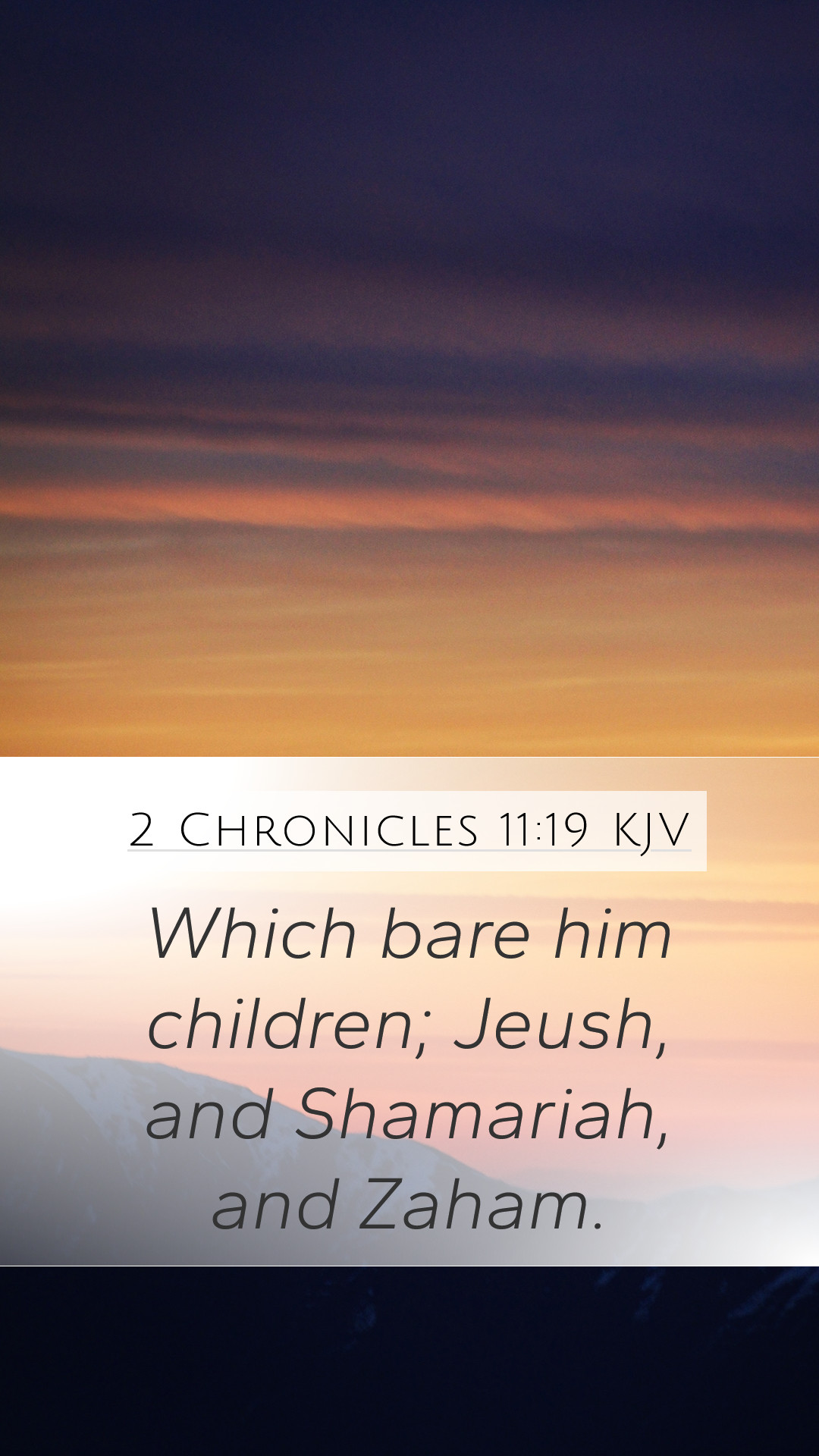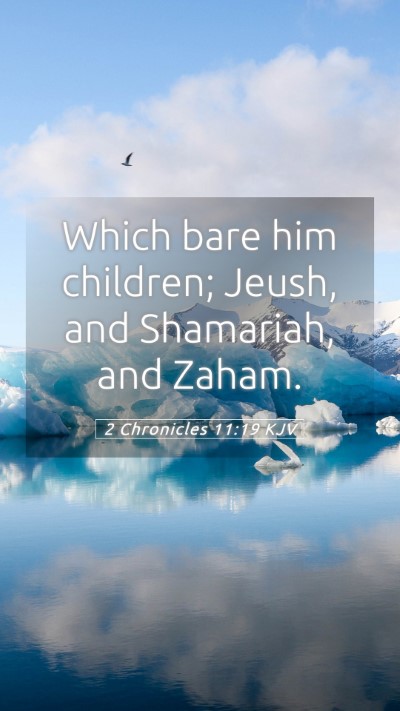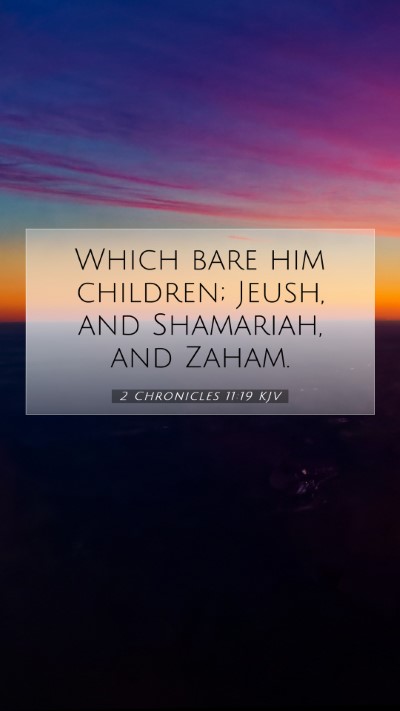Understanding 2 Chronicles 11:19
Bible Verse: 2 Chronicles 11:19 - "And she bare him sons, Jeush, and Shemariah, and Zaham."
Overview of the Verse
This verse concludes a brief account of Rehoboam's family, particularly focusing on the birth of his sons. The genealogical aspect here is significant within the broader narrative of the history of Israel's monarchy, emphasizing the continuity of lineage and the divine favor that surrounds Rehoboam amid the tensions of separation between the Northern and Southern kingdoms.
Key Interpretations
- Matthew Henry's Commentary: Henry highlights the importance of the family structure in the Bible, noting how Rehoboam's sons represent the hope of succession and stability in a tumultuous political context. The lineage of royal families often carried implications for future rulership and divine promises.
- Albert Barnes' Notes: Barnes elaborates on the naming of Rehoboam's sons, suggesting that names in the biblical text often carry specific meanings that reflect God's attributes or circumstances of their birth. He indicates that the listing of these names may also serve to affirm Rehoboam's legacy as king.
- Adam Clarke's Commentary: Clarke finds significance in the attention given to Rehoboam's heirs, as it denotes the importance of providence in ensuring that there are rightful heirs to the throne. It reflects the overarching theme of God's dealings with Israel and the preservation of the Davidic line.
Historical and Theological Context
This verse falls within the historical narrative of the divided kingdom, which began after the reign of Solomon. Understanding the context of Rehoboam’s rule following Solomon provides insight into the challenges he faced, including rebellion and division among the tribes of Israel. The mention of his sons suggests a focus on maintaining leadership and identity amidst this division.
Application of the Verse
The applications of 2 Chronicles 11:19 may vary depending on the reader's context. In personal life, it may remind individuals of the importance of family and legacy, the duties of leadership, and the need for stability in uncertain times. From a spiritual perspective, it invites reflection on God’s faithfulness in sustaining His purposes through generations.
Related Bible Cross References
- 1 Kings 14:31 - Discusses the reign of Rehoboam and his legacy.
- 2 Chronicles 10:1-19 - Provides context for Rehoboam's ascension and the division of the kingdom.
- 1 Chronicles 3:10-12 - Lists the descendants of David, emphasizing the significance of lineage.
Further Study Suggestions
For those interested in deeper exploration of this text, consider the following:
- Engage in online Bible study to gather various viewpoints and insights.
- Utilize bible study tools to analyze the meanings of the names mentioned.
- Join bible study groups to discuss the themes of lineage and divine promise related to Rehoboam's sons.
Conclusion
In summary, 2 Chronicles 11:19 serves as more than a simple genealogical note; it symbolizes the continuity of God's promises and the significance of family in the broader narrative of Israel's history. Understanding this verse encourages readers to reflect on their legacies while recognizing the divine orchestration within history.
More on Bible Verse Meanings
For further comprehension of biblical narratives, exploring commentaries offers a wealth of bible verse explanations and bible verse interpretations. This enriches one’s bible verse understanding and enhances tools for Bible study resources. Dive into the meaning of Bible verses for a deeper connection with Scripture.


